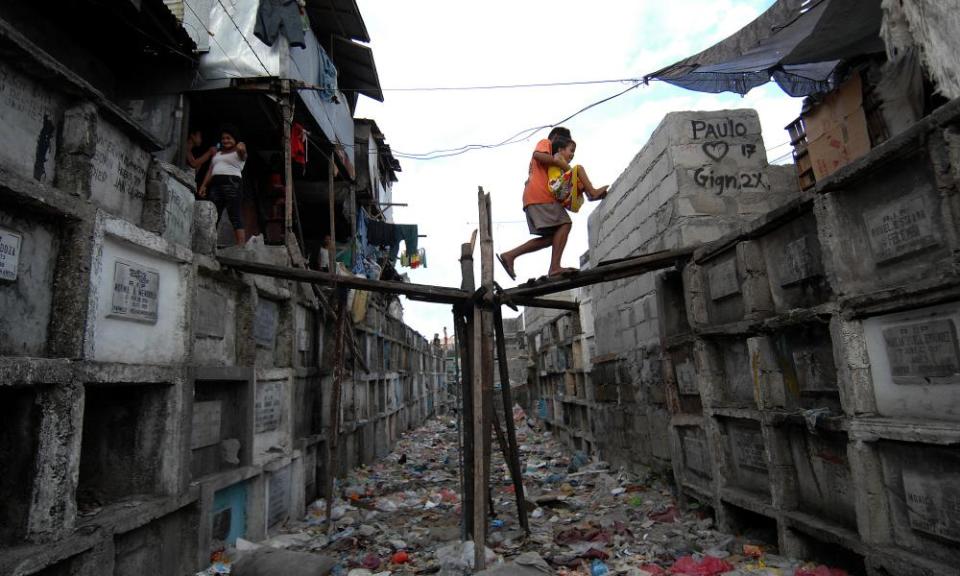Morning mail: Labor and Coalition under privacy pressure

Good morning, this is Eleanor Ainge Roy bringing you the main stories and must-reads on Thursday 22 March.
Top stories
Facebook’s CEO, Mark Zuckerberg, has broken his silence on the data-harvesting scandal that has enveloped Facebook this week, acknowledging in a Facebook post that the policies that allowed a political consultancy to obtain data on 50 million Americans data were “a breach of trust between Facebook and the people who share their data with us and expect us to protect it”. It comes as Australia’s major political parties face increasing pressure to abandon the special exemption they enjoy from privacy laws when they use voters’ personal information. Data mining and targeted messaging have become central to modern campaigning, but the exposure of Cambridge Analytica’s methodologies has raised serious doubts around the ethics of the practices, which some have called “information warfare”. Two-thirds of Australians mistakenly believe political parties must abide by the Privacy Act in their campaigning activities and voter research databases, said the privacy commissioner, Timothy Pilgrim.
Rod Sims, the chairman of the Australian Competition and Consumer Commission, confirmed the data collection practices of Facebook and other internet giants would be investigated by the consumer watchdog as part of its ongoing inquiry into their impact on competition in the media and advertising markets.
The British foreign secretary Boris Johnson has compared the Russian World Cup to Hitler’s 1936 Olympics. Johnson suggested the UK would need to advise English soccer fans not to travel to Russia for their own safety as Anglo-Russian relations deteriorate. Johnson also revealed the British diplomat responsible for liaising with UK fans had been expelled as part of the diplomatic tit-for-tat expulsions, and he would be seeking urgent assurances from Russia that it would fulfil its obligations under the World Cup contract to ensure the safety of fans. Both Russia and England have a history of violent football fans, and there are concerns the prospect of fighting between the two sets is increased in the current atmosphere of political tension.
The Coalition has told crossbenchers that denying big business a company tax cut would be “economically damaging” because it would create an incentive keep operations smaller, according to a briefing seen by Guardian Australia. In the documents the finance minister, Mathias Cormann, argues the lower US corporate tax rate creates a sense of urgency, adding: “To not pass this legislation now would pose an immediate threat to investment, jobs and future wages growth with a consequent real impact on the living standards of everyday Australians who would inevitably suffer as a result.”
New South Wales Labor has refused to sign off on extending the state’s regional forest agreements because the government “knows the science underpinning the RFAs is out of date and incomplete”. It said fresh assessments must include climate change, given the key role of forests for carbon storage. The move puts pressure on federal Labor to toughen its position on the RFA renewals across Australia. Guardian Australia revealed on Wednesday that federal and state ministers had discussed legal concerns that extensions to logging agreements might be invalid because they are based on old scientific assessments.
The Austin bombing suspect who has been terrorising the city with exploding packages that killed two people has blown himself up as a Swat team closed in on a hotel where he was staying. The suspect has been named by local media as Mark Anthony Conditt, is a 23-year-old unemployed man who killed himself with one of his own devices. CCTV had captured footage of the suspect in a blond wig and gloves posting packages on Sunday night, which helped officers track him to the hotel, after weeks of frustration at being unable to establish a motive or pattern.
A massive expansion of irrigated crops, particularly trees, in the Mildura region is threatening to use more than the available water in lower Murray river, and has set the scene for a disaster if drought conditions return. A 16-day heatwave that hit the region a few weeks ago exposed the vulnerability of the region. The Murray-Darling basin’s water managers scrambled to meet demand as the region experienced a run of days over 35C between 16 and 29 January. But it is the long-term scenario that has environmentalists and water authorities worried. The Victorian Farmers Federation’s water council chairman, Richard Anderson, said the region had been “just days off facing major water restrictions”. He said: “If the hot weather had continued, we would have been in real trouble.” Many of the new plantations have been raised using temporary water rights that are only available when there is no drought, raising questions about what will happen to them in dry years.
Sport
The AFL season starts tonight when reigning premiers’ Richmond take on Carlton at the MCG (a game you can follow with the Guardian’s liveblog from 1900 AEST), but it’s the vengeful Crows who are shaping as the Tigers’ main rivals this year. If not that pair, then who?
The third Test between Australia and South Africa also gets under way on Thursday, with tensions high after recent clashes between the two sides. On the eve of the first day of play in Cape Town, Australian captain Steve Smith opened up about the decision to allow Kasigo Rabada to play. “The other person involved not getting asked about it is pretty interesting,” Smith said after his interpretation of events were ignored during the appeal process.
Thinking time

In the overstretched city of Manila in the Philippines, the city’s poorest people have taken up residence in the graveyards, as they have nowhere else to live. They earn their keep by tending the grounds and caring for the graves and mausoleum; the living keeping the dead company. “I have lived here for 51 years – and I have been trying to leave for 51 years,” says Elvira Miranda, a graveyard resident. “The government want us gone, and we also want to go. But we need somewhere to go.”
The latest property figures show a continued slowing of growth, reflecting the end of the housing boom, writes Greg Jericho. They show that in January the level of housing finance was 1.5% below what it was 12 months earlier. That is the first annual fall since August 2016, and once again it is being driven by a decrease in investor finance. But the difference is that in August 2016 the Reserve Bank cut interest rates from 1.75% to 1.5%. Right now, there is absolutely no sense of any rate cut coming.
ABC TV’s new comedy Sando, co-created by Phil Lloyd and Charlie Garber and directed by brothers Christiaan and Connor Van Vuuren, follows protagonist Victoria “Sando” Sandringham (Sacha Horler), “the package deal queen”: an utter trainwreck of a woman, with a gravitational pull that sucks the people around her into maelstroms of chaos and confusion. Luke Buckmaster reviews the first three episodes.
What’s he done now?
Donald Trump was warned by his national security advisers not to phone Putin to congratulate him on his presidential win, CNN is reporting – but he went ahead and did it anyway.
Media roundup
The West Australian reports a police officer has been stood down for using “unnecessary force” by repeatedly tasering a man after pulling him over for a routine traffic stop. The Corruption and Crime Commission also criticised a criminal investigation by the Traffic Enforcement Group, a managerial review, and a Professional Conduct Investigation Unit review as flawed. The Daily Telegraph has a story about leaked audio revealing a “civil war” between volunteer and professional firefighters in NSW. The Australian Financial Review looks at companies’ push to convince undecided senators that they would reinvest an tax cuts back in the Australian economy, should senators agree to pass said cuts. And the ABC reports that casual workers employed to respond to Tasmania’s fruit-fly crisis weren’t paid by the government for over a month.
Coming up
South Australia’s new Liberal cabinet is to be sworn in after winning a majority in the election on Saturday.
The former US president Barack Obama will speak at the New Zealand-United States Council during his visit to Auckland.
Supporting the Guardian
We’d like to acknowledge our generous supporters who enable us to keep reporting on the critical stories. If you value what we do and would like to help, please make a contribution or become a supporter today. Thank you.

 Yahoo Sport
Yahoo Sport 





































